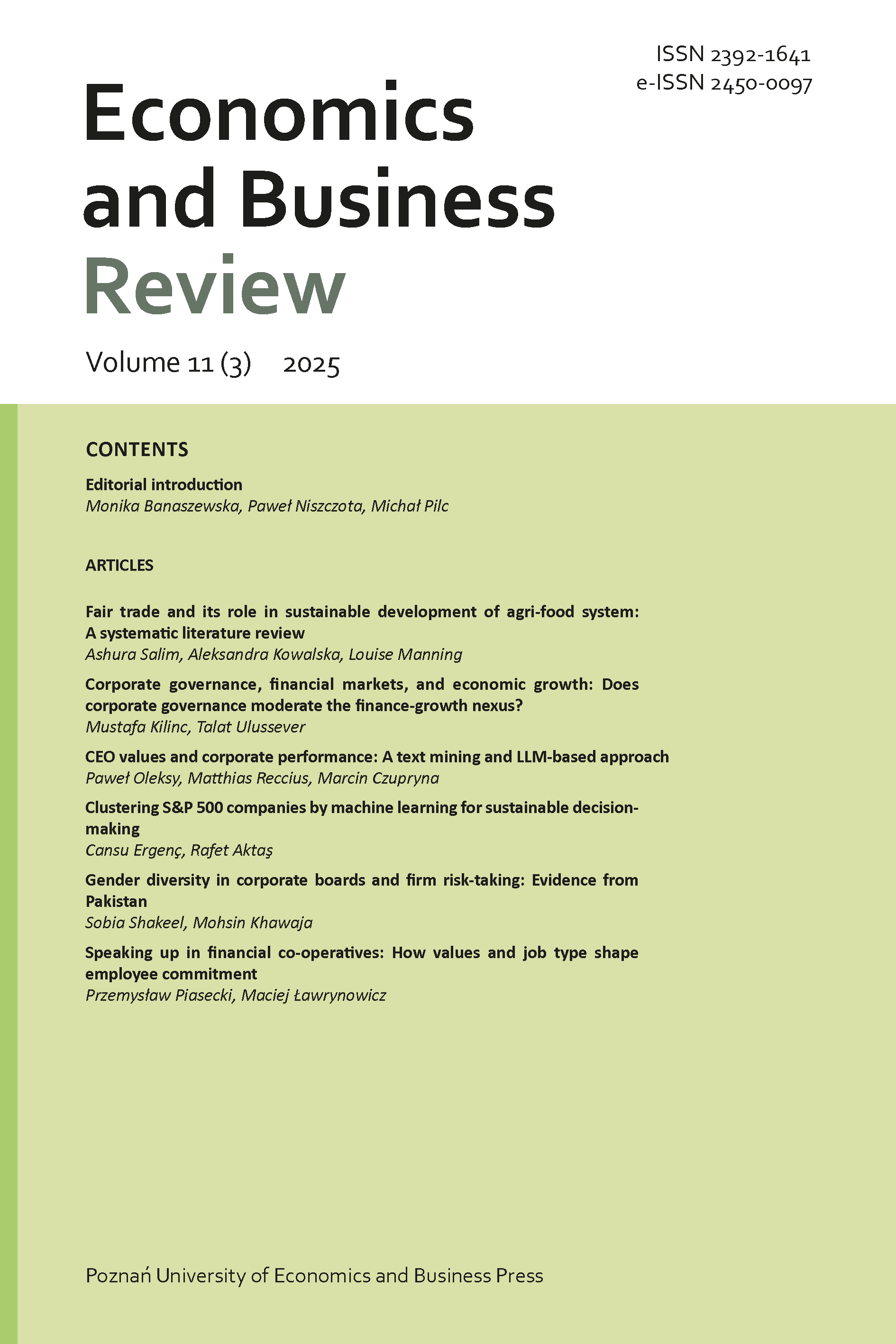ISSN 2392-1641
e-ISSN 2450-0097
DOI: 10.18559/ebr

Economic theory is expected to simplify reality in order to identify and analyse the core mechanisms that drive it. In practice, this means that what constitutes a whole field of scientific inquiry for one person can be summarised in a single, simple sentence by an economist. For instance, an economist might say that a CEO is simply an economic agent who maximises income for the shareholders of the company.
The current issue of Economics and Business Review serves as a reminder that this is much easier said than done. This is because this issue focuses strongly on the challenges faced by many CEOs around the world (which turn out to be surprisingly common despite the diversity of countries covered by the six presented studies). Engagement in ESG practices or fair trade, obligations arising from diversity regulations, and managing employee voice and commitment are examples of the complex matters discussed in this issue, all of which must be dealt with by a CEO in order to generate income for shareholders. Moreover, as one of the studies included shows, a useful guide for navigating these challenges is not necessarily economic theory but rather the values that CEOs share and communicate. However, economic theory remains useful for understanding the broader context. For instance, as another article demonstrates, it helps to explain how corporate governance translates into economic growth.(...) (Monika Banaszewska, Paweł Niszczota, Michał Pilc).
ISSN 2392-1641
e-ISSN 2450-0097
DOI: 10.18559/ebr
Impact Factor: 1.6
CiteScore 2024: 2.1
SJR 2024: 0.299
SNIP 2024: 0.438
JCI 2022: 0.27
MNiSW: 70
ABDC- JQL: C
Editorial Office: Economics and Business Review
Collegium Altum
ul. Powstańców Wielkopolskich 16, room 109
61-895 Poznań, Poland
secretary@ebr.edu.pl
Publisher&Owner: Poznań University of Economics and Business Press
al. Niepodległości 10
61-875 Poznań, Poland
https://wydawnictwo.ue.poznan.pl
Publisher's office: wydawnictwo@ue.poznan.pl
phone +48 61 854 31 54
